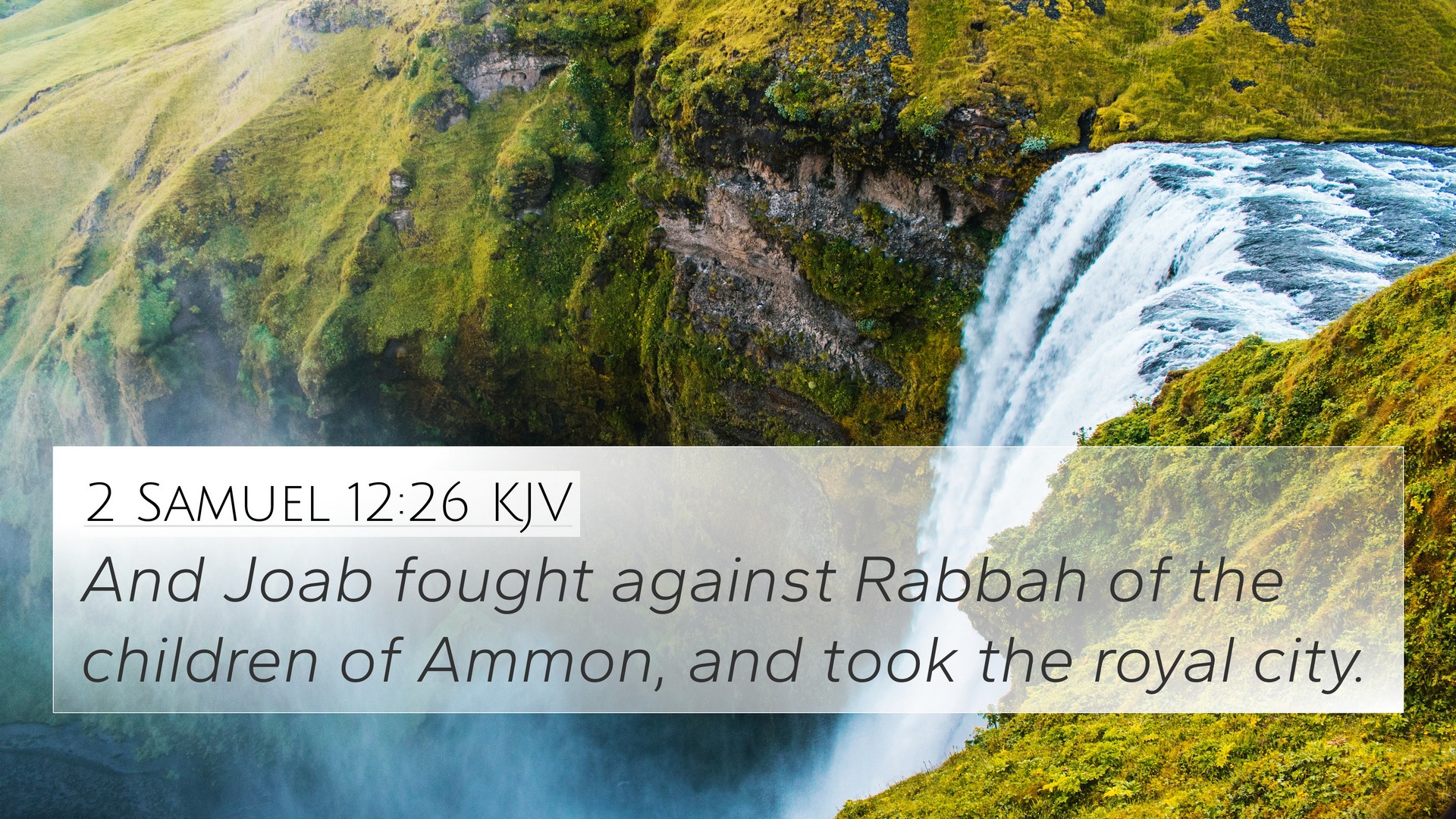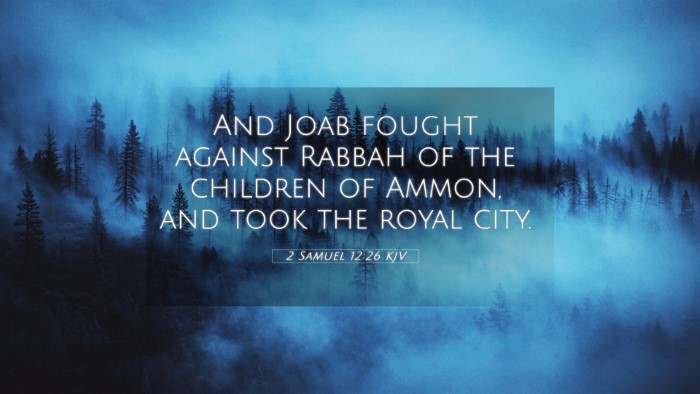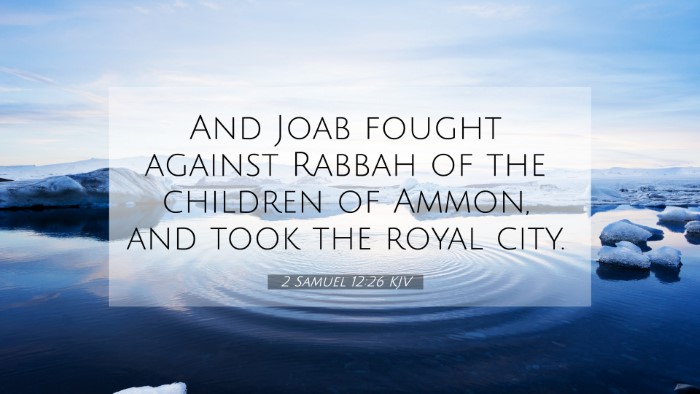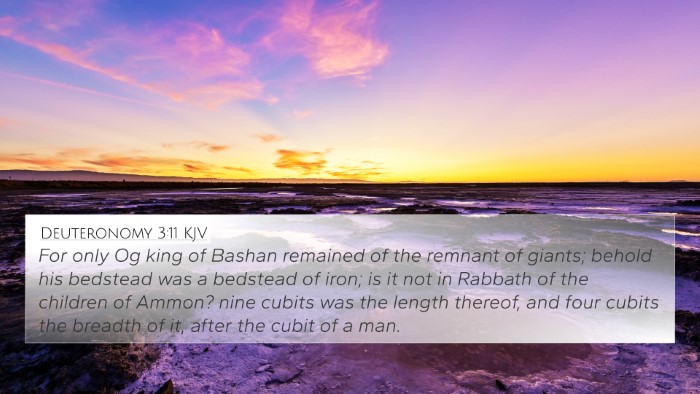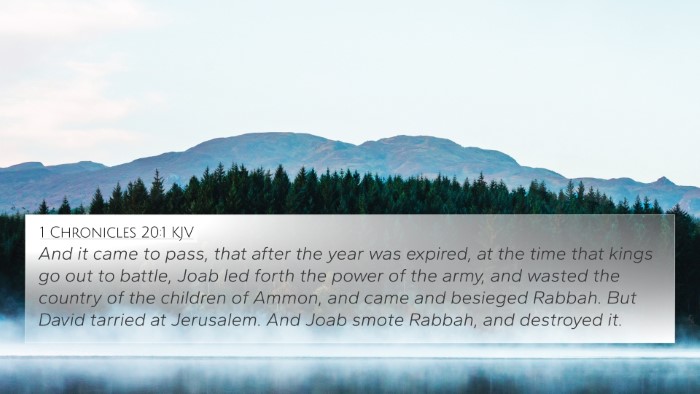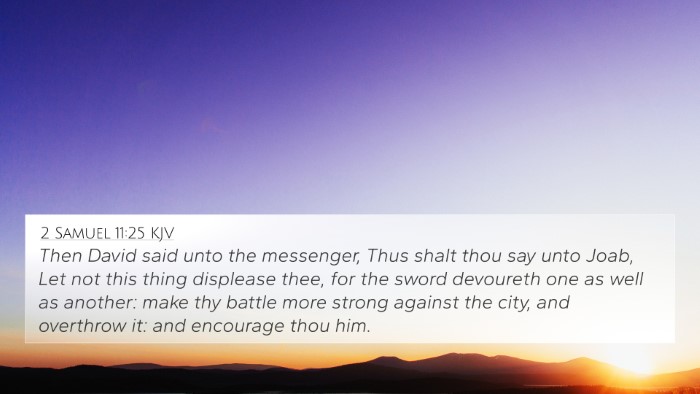Understanding 2 Samuel 12:26
In this verse, we witness a significant moment in the story of King David as he leads Israel against the Ammonites. The verse states, "And Joab fought against Rabbah of the children of Ammon, and took the royal city." This event is notable not only in the context of David's military endeavors but also in the broader narrative of God’s plans for Israel.
Commentary Insights
The commentaries examined provide valuable insights into the meaning and implications of this verse:
- Matthew Henry: Henry emphasizes Joab's role as a commander who acts decisively. His battle against Rabbah demonstrates the fulfilment of God’s sovereignty in the wars of Israel. Joab's actions are aligned with God's will as he strikes a decisive victory against the opponents of God's people.
- Albert Barnes: Barnes notes that Joab's victory contributes to the larger narrative of David's kingship and the establishment of the Israelite kingdom. The capture of Rabbah serves as a pivotal point in asserting Israel's dominance over its enemies and fulfilling God's promise to David regarding his reign.
- Adam Clarke: Clarke discusses the symbolism of David's victory at Rabbah. He links it to themes of struggle and divine intervention. The city of Rabbah represents the pagan nations that oppose Israel, and Joab’s success points to God’s assistance in the conflicts faced by David and his reign.
Cross-References
Below are Bible verses that provide thematic connections and parallels to 2 Samuel 12:26:
- 2 Samuel 10:1-14: The previous account of war against the Ammonites sets the stage for this victory.
- Deuteronomy 20:1-4: God's guidelines for warfare remind Israel of His presence during battle.
- 1 Chronicles 20:1: A parallel account of Joab's campaign against Rabbah, reinforcing the importance of this military victory.
- Psalm 20:7-8: This psalm highlights trust in the Lord during times of battle, echoing the sentiments seen in David's reliance on God's strength.
- 1 Samuel 17:47: David's earlier victory over Goliath serves as a testament to God's power in fighting Israel's battles.
- Joshua 10:25: Encouragement from God during battles reflects the ongoing theme of divine support in warfare.
- Zechariah 10:5: The strong warrior concept reinforces God's role in battles on behalf of His people.
- Romans 8:31: This verse accentuates that if God is for us, who can be against us, which resonates with David's situation.
- Proverbs 21:31: The victory in battle is attributed to the LORD, emphasizing reliance on divine strength.
- Hebrews 11:32-34: References to faith warriors, accumulatively taking victories, echo the overarching narrative of faith leading to triumph.
Thematic Connections
Examining 2 Samuel 12:26 in light of the mentioned passages exemplifies the rich tapestry of interconnected scripture. The themes of divine support, victory, and the importance of leadership resonate throughout the Bible, deepening our understanding of this particular verse.
Importance of Cross-Referencing
Engaging with Bible cross-references enhances our understanding of scriptural texts. By examining the links between verses, we can derive deeper meanings and see how various texts converse on similar themes. Cross-referencing Biblical texts offers a holistic view of the scripture, leading to enriched theological insights and theological accuracy.
Tools for Bible Cross-Referencing
- Bible concordance
- Bible cross-reference guide
- Cross-reference Bible study materials
- Comprehensive Bible cross-reference tools
- Bible reference resources
Conclusion
2 Samuel 12:26 stands as a testament not only to a historical moment in Israel's story but also to the enduring principles of faith, leadership, and reliance on God during trials. The connections drawn between this verse and others illuminate a path through scripture that reinforces the continuity of God’s purpose through history.
